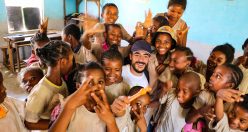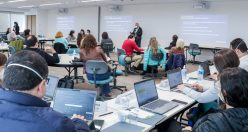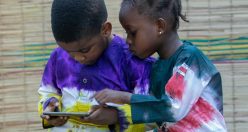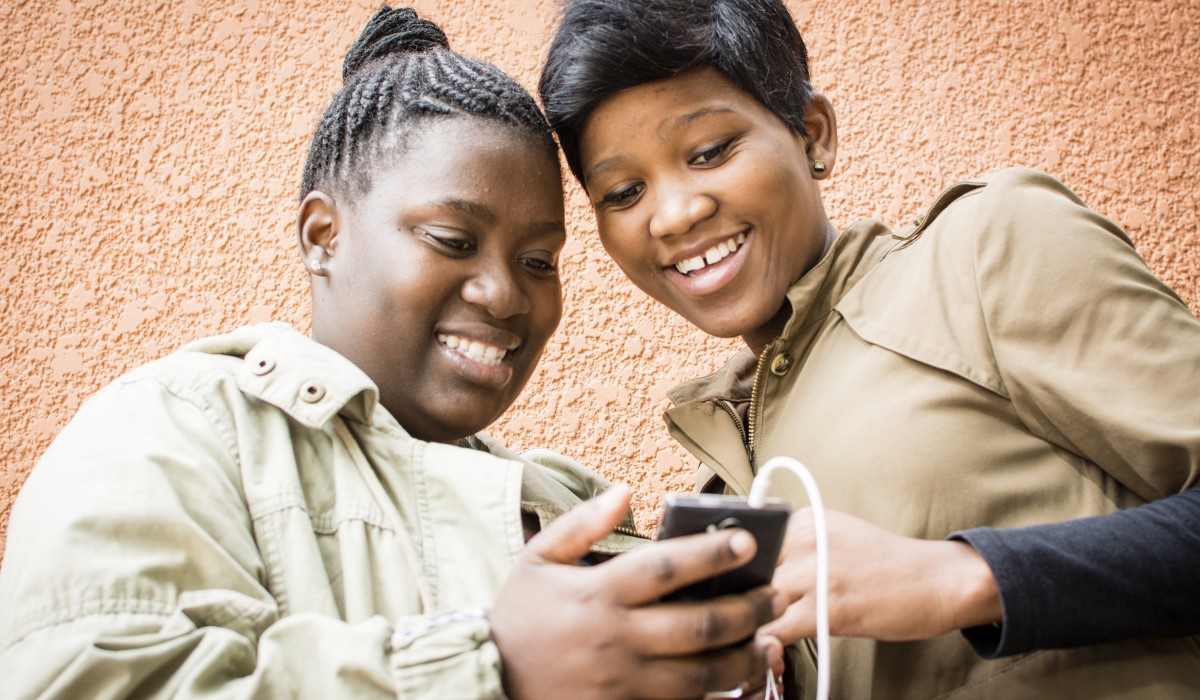-

Children’s participation in digital policy-making
2nd December 2022
A fundamental pillar to realise the rights of every child both in the online and offline space is the meaningful participation of all children, especially of those most vulnerable. The Government of Zimbabwe has sought to operationalise the child rights principles in the development of a policy framework and implementation tools to ensure a child rights-centered approach to online safety.
-

Implementing child rights online: a Global Kids Online webinar
21st November 2022
With children’s experiences of online risk of harm often in the headlines, we urgently need new rigorous comparative research that’s impactful and can promote children’s rights in the digital world. Global Kids Online and Disrupting Harm organised a webinar on Implementing child rights online: new cross-national evidence to guide policy. You can now watch the recording of the event.
-

Three in ten children in Brazil look for mental health and well-being information online
16th August 2022
The 8th edition of the ICT Kids Online Brazil survey is launched today by the Regional Center for Studies on the Development of the Information Society (Cetic.br). Drawing on a nationally representative survey with 2, 651 children aged 9 to 17 and one of their parents, the Brazilian study is the longest-running in the Global Kids Online network with annual waves since 2012. A new addition to the survey this year was collecting data on the use of the internet for health information and emotional support.
-

Spending time online can boost children’s well-being– depending on their social framework
24th June 2022
Contrary to what many fear, the time children spend in front of a screen is associated with a good quality of life. EU Kids Online findings from media researchers at the University of Oslo indicate that plenty of screen time is a positive rather than a negative thing for children and adolescents with a supportive family and school network.
-

Online sexual exploitation and abuse: new findings
1st June 2022
Protecting children from online sexual exploitation and abuse (OCSEA) has been at the forefront of international efforts over the past week. The WePROTECT Global Summit in Brussels gathered more than 400 delegates from industry, government, civil society and international organisations coming together with the aim to strengthen the global response to OCSEA. The misuse of the internet and digital technologies to sexually abuse and exploit children is a rapidly growing issue that knows no borders. Yet, evidence on the nature and scale of the problem remains limited.
-

Children’s experiences of risks online in Zambia
9th May 2022
Like children in many parts of the world, the COVID-19 pandemic profoundly affected the lives of children in Zambia, with many moving online for many of their daily activities and simply spending more time online. While there is no reliable data on the degree to which children were using the internet and technology before the pandemic, the recent Zambia Kids Online study undertaken across several sites within Zambia has provided some insight into children’s online experiences, both positive and negative.
-

Safer Internet Day 2022: what we are talking about today
8th February 2022
Safer Internet Day is celebrated globally in February to promote children’s safe and beneficial use of digital technologies. This year the celebrations are dedicated to the theme “All fun and games? Exploring respect and relationships online” acknowledging how young people are shaping the interactive entertainment spaces they are a part of online. Here is a quick overview of some relevant Global Kids Online resources on children’s internet safety.
-

Do internet addiction and gaming disorders exist?
8th November 2021
Since the invention of online gaming, there have been concerns that video games were destroying the mental health of a generation. The WHO’s decision in 2018 to include Gaming Disorder in the International Classification of Diseases (ICD) has reignited fears that online games can be addictive.
-

Adjusting to a socially distanced world
29th April 2021
Although COVID-19 presented challenges for research and fieldwork in 2020, our Global Kids Online partners have made important progress still. We share updates and reflect on lessons learned during a year of adjusting to a socially distanced world. While the lives of many children have become digital by default, Global Kids Online has worked to unpack how digital inequalities affect children’s online opportunities, to identify pathways to vulnerability, inform child protection efforts, and to flag concerns about the impact of digital marginalization on child rights.
Search Global Kids Online
Popular tags
Albania
Argentina
Brazil
Bulgaria
Canada
Children's rights
Children online
Chile
China
Costa Rica
COVID19
Cyber-bullying
Czech Republic
Digital literacy
Disrupting Harm
Ecuador
EU Kids Online
Europe
Fieldwork
Findings
Ghana
Impact
India
Italy
Latin America
Montenegro
New Zealand
Norway
Online opportunities
Online risks
Online safety
Philippines
Policy
Presentation
Privacy
Reports
Research methods
Research Synthesis
Research tools
Serbia
South Africa
Stakeholder engagement
Survey
UNICEF
Uruguay








